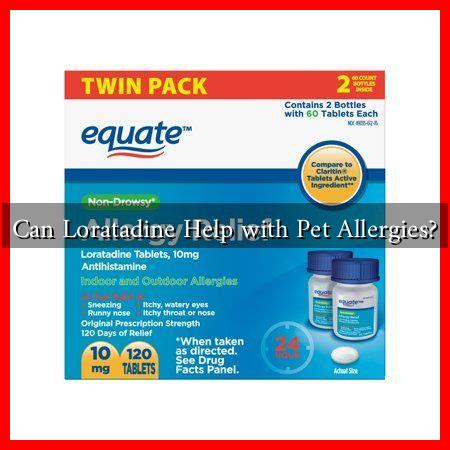-
Table of Contents
Can Loratadine Help with Pet Allergies?
Pet allergies are a common issue for many individuals, leading to discomfort and a reduced quality of life. As pet ownership continues to rise, so does the prevalence of allergies related to furry companions. One potential solution that has gained attention is Loratadine, an antihistamine commonly used to treat allergies in humans. This article explores whether Loratadine can effectively alleviate symptoms associated with pet allergies.
Understanding Pet Allergies
Pet allergies are primarily caused by proteins found in a pet’s skin cells, urine, and saliva. When these proteins are inhaled or come into contact with the skin, they can trigger allergic reactions in sensitive individuals. Common symptoms of pet allergies include:
- Itchy or watery eyes
- Runny or stuffy nose
- Sneezing
- Skin rashes or hives
- Difficulty breathing or wheezing
According to the American College of Allergy, Asthma, and Immunology, approximately 10% of the population is allergic to pets, with cats and dogs being the most common culprits. Understanding the underlying mechanisms of these allergies is crucial for effective treatment.
What is Loratadine?
Loratadine is a second-generation antihistamine that is widely used to relieve allergy symptoms. Unlike first-generation antihistamines, Loratadine is less likely to cause drowsiness, making it a popular choice for those who need to maintain their daily activities. It works by blocking the action of histamine, a substance in the body that causes allergic symptoms.
Can Loratadine Help with Pet Allergies?
While Loratadine is primarily designed for human use, many pet owners wonder if it can also help alleviate their allergies to pets. Research indicates that Loratadine can be effective in managing symptoms associated with various allergens, including pet dander. Here are some key points to consider:
- Effectiveness: Studies have shown that Loratadine can significantly reduce symptoms such as sneezing, runny nose, and itchy eyes in individuals allergic to pets.
- Dosage: The typical adult dosage for Loratadine is 10 mg once daily. However, it is essential to consult a healthcare professional for personalized advice, especially for children or those with pre-existing health conditions.
- Side Effects: While Loratadine is generally well-tolerated, some individuals may experience side effects such as headache, fatigue, or dry mouth. It is crucial to monitor any adverse reactions.
Case Studies and Anecdotal Evidence
Numerous anecdotal reports suggest that Loratadine has helped individuals manage their pet allergies effectively. For instance, a case study published in the Journal of Allergy and Clinical Immunology highlighted a patient who experienced significant relief from pet allergy symptoms after incorporating Loratadine into their daily routine. The patient reported a marked decrease in sneezing and nasal congestion, allowing them to enjoy time with their pets without discomfort.
Alternative Treatments for Pet Allergies
While Loratadine can be beneficial, it is not the only option available for managing pet allergies. Other treatments include:
- Allergen Immunotherapy: This long-term treatment involves gradually exposing the patient to allergens to build tolerance.
- Environmental Control: Regular cleaning, using air purifiers, and creating pet-free zones in the home can help reduce exposure to allergens.
- Other Medications: Other antihistamines, nasal corticosteroids, and decongestants may also be effective in managing symptoms.
Conclusion
In summary, Loratadine can be a helpful option for individuals suffering from pet allergies. Its effectiveness in reducing allergy symptoms, combined with its low incidence of side effects, makes it a viable choice for many. However, it is essential to consult with a healthcare professional before starting any new medication, especially for those with existing health conditions or who are taking other medications. Additionally, exploring alternative treatments and environmental controls can further enhance the quality of life for pet owners dealing with allergies. For more information on managing pet allergies, consider visiting the American College of Allergy, Asthma, and Immunology.

